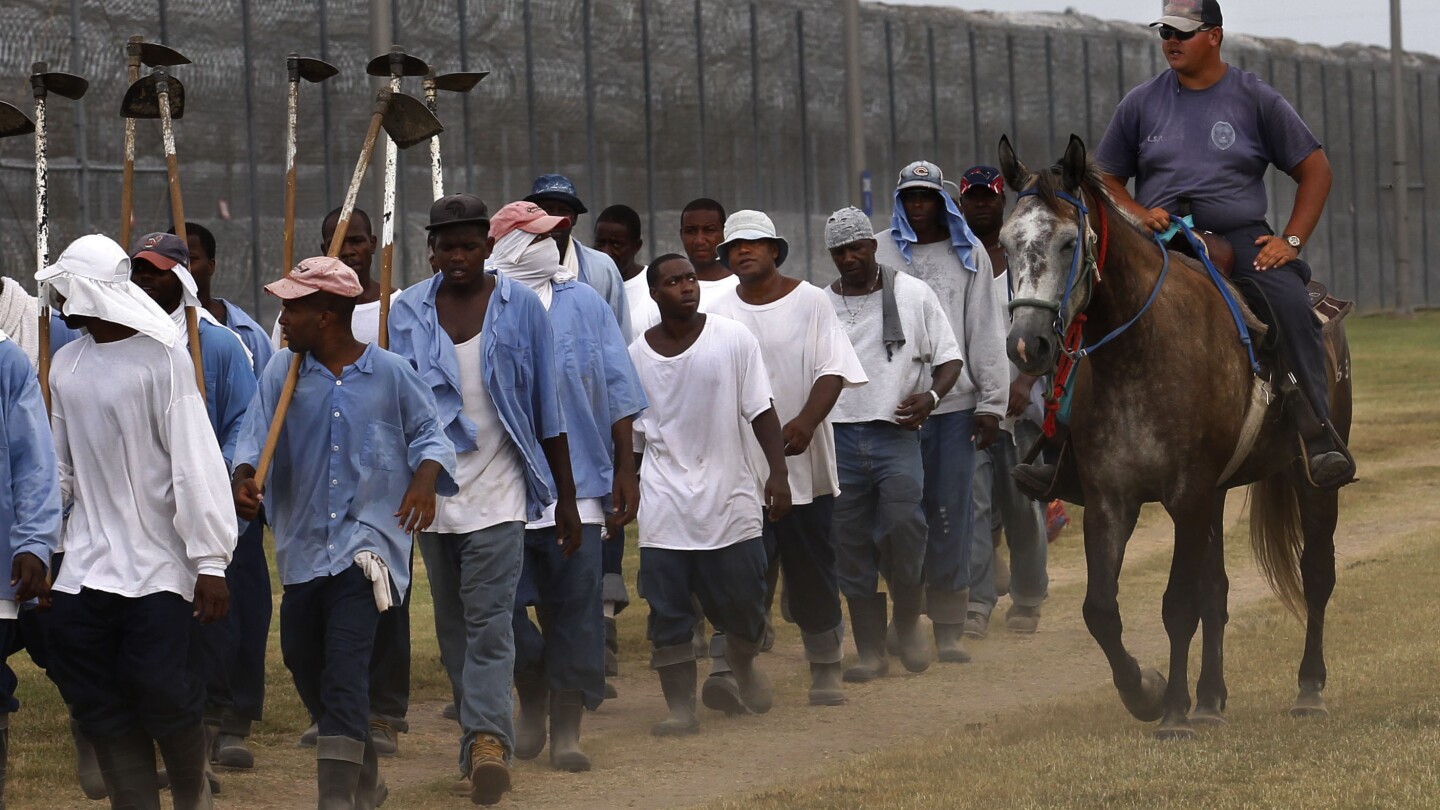Beneath the blazing summer sun on a former slave plantation, Lamont Gross and fellow prisoners stooped in long rows, picking vegetables by hand under the watchful eyes of armed guards on horseback. He said breaks were short and infrequent, with nothing to protect workers from the heat.
“I saw guys collapse,” Gross said of his days on the so-called farm line at Louisiana’s state penitentiary, where men work for pennies an hour or nothing at all and face punishment if they refuse. “There were dudes that got heat stroke. There were dudes with underlying conditions, older or had some sort of disability, but they had to go out there, too.”
As daily temperatures hit record highs across much of the South, a federal judge took an unusual step, challenging the treatment of mostly Black incarcerated workers in the fields.
America’s largest maximum-security prison, known as Angola, sits on 18,000 acres. It was once a patchwork of cotton fields where, historians note, even enslaved pregnant women and young children worked from dawn to dusk during the busiest and hottest harvesting months. Prisoners have toiled on the same farm lines since after emancipation often without shade, adequate work breaks or even sunscreen.



My uncle saw it firsthand. He saw the chain gangs clearing out vines in the south while the prisoners got lit up by hornets (and couldn’t move since everyone was chained together). My uncle asked the fat, white prison guard if they were going to get bug killer for the prisoners. The guard laughed and said they will, in three days. He deliberately was making an example out of them.
They were the worst of the worst- comprised entirely of murderers, pedophiles, and rapists…but even then (late 70s-80s), it seemed cruel and unusual. I think the heat has made people cruel to each other down there. Monsters, even.